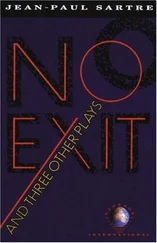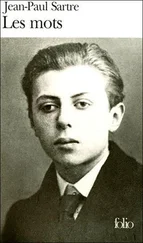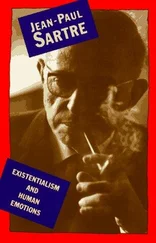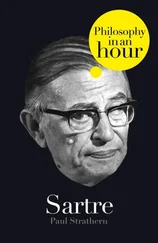A couple of days later Shaul was wondering who would replace Salim in the shop. He needed another person, but this time things were different. He was free to choose someone he could mold with his own ideas and principles. His wife had imposed Salim on him because he was a relative of hers. Shaul was convinced that only ideas last, that everything else was futile. If he succeeded in imbuing someone with his ideas and principles he would be able to control and subdue him, if not by making him aware of the social difference that separated them then by their shared ideas. He did not want someone with a set way of thinking, someone who would not acknowledge his debt to him; he wanted someone green, a blank page that he could fill with ideas of his choosing and so induce to think the way he wished. One fine day Ismail entered Shaul’s shop with the pornographic photographs deep in the pocket of his shabby, well-worn black jacket. He was disheveled, his hands red from scratching bug bites, and his shirt collar dirty and smelling of cheap arrack. He sat on a clean sofa in a remote corner of the shop filled with shiny new merchandise. He blew his nose in his hand and wore a sad look on his face. Shaul stared at this miserable excuse for a man lurking in the corner. He moved closer until he sat facing him and began to speak softly. Meanwhile Ismail was fingering the smooth photographs in his pocket, trying to judge when might be the right moment to take them out and wondering all the while why Shaul had not asked about them. But Shaul was talking about a totally different subject. He wanted Ismail to understand, he said, that he was a victim of social exploitation, that his adversity was only a temporary situation, and that he would be able to pull him out of it, change him, and provide him with a new appearance. He also told him that nothing in life was permanent, that everything was subject to the vicissitudes of time, a difference in the availability of money, and one’s ability to make and spend money. He told him that he, Ismail, would be a different person if he filled his pockets with money, if he worked hard and joined the social order.
Shaul was promising Ismail something concrete, something that would happen to him in this life, something he could touch and feel with his own hands. He told him that his poverty was a historical poverty, not caused by him or his family but the result of History. Ismail was shocked when he heard this and immediately pulled a knife out of his pocket and told him, “Show me History and I will rip out his guts.” Shaul smiled and replied, “We have to correct History, not kill it.” He uttered those words then smacked his tongue and wet his lips. His eyes gleamed from behind his thick glasses. They were flat, lifeless eyes, moving left and right like plastic beads, and the thick black plastic frames hid his eyebrows.
Shaul’s words destroyed the sturdy wall behind which Ismail used to hide. Such serious ideas sent him reeling, though he understood nothing from them except that he could overpower people. He understood only the essence of those words, and, according to Ismail, the essence was that he would get rid of the rags he was wearing, become clean and tidy, and acquire importance in society as others had done. He understood that he’d abandon his unruly life and live an organized one. He’d have to give up the freedom that led him only to misery and enter a life of slavery that would eventually make him a master. Since he had already tried the first kind of life, he was willing with all his heart to try a new one. He was filled with a strong desire to be wealthy and famous, meet clean women, and gain false honor— and the one to provide him with all this was, his savior, Shaul.
Shaul was more drawn to Ismail than the others because he was a strong young man who approached life with all his strength and had spent the early years of his youth experimenting with everything life had to offer, thanks to his social condition. Shaul wanted to build a colony of happiness on earth, and Ismail’s wild, dissolute, and lawless way of life was a historical, not an individual, responsibility. History was in fact to blame for Ismail’s life of vice and dissolution, for his irresponsible behavior that revolved around the body instead of the mind.
6
This was the first step in cleaning and purifying Ismail, both mentally and physically. Shaul took him first to al-Saada public bath in Bataween, bought him new clothes from the Hisso Brothers’ store in al-Rashid Street, and visited the Babet barber to have his hair cut and beard shaved. Ismail gradually learned to live this new life, making the most of the easy, relaxed existence. He saw himself as bigger and more important than he truly was, especially when Shaul helped him take his first steps on the road to the new life. He was puzzled by a life he had not known existed and was seduced by its beautiful, rich, and easy aspects. He visited Shaul’s house, a luxurious mansion in eastern Kerrada, close to the gardens overlooking the river. The mansion had its own dense gardens that connected to vast fields and pastures extending as far as the eye could see. Ismail would stare at the huge number of apple, orange, and olive trees on the grounds. There were also palms beautifully displayed in the garden and beyond the fence, and he could see sheep grazing in the distance.
Ismail was awed by the palatial residences he saw on his way to Shaul’s mansion. Their roofs were blue, and there were tiles on the facades. He had been walking lazily since he settled in his comfortable life and enjoyed breathing the scent of the fruit around him. When he first arrived at Shaul’s mansion he felt lost and uneasy as he gawked at the large house with marble columns, while the sun shone on the stained glass windows and a terrace decorated with expensive baked brick. When he walked across the small bridge near the mansion gate he admired the reflection of the grass on the surface of the water. As soon as the two entered the house through the mahogany gate, Ismail felt the warmth from the heating stove situated in the middle of the beautifully decorated living room. Oak bookshelves stood in each corner, and numerous vases were filled with rare flowers. They both sat on comfortable armchairs covered with soft and valuable Persian rugs. Through the silk curtains Ismail could see the setting sun spreading its red rays over the green fields. In the distance he saw a motionless white fog covering the surface of the river like a thin veil. He felt the rising warmth of the heating stove, and then the smell of the food filled the mansion. A nightingale in a golden cage near the tall window began to sing.
Shaul escorted Ismail to a bedroom on the second floor overlooking the river. Ismail stood transfixed watching the small boats move between the riverbanks. In the distance he saw minarets and the blue roofs of mansions standing along the river. Later on he went downstairs in his cotton bathrobe, warm pajamas, and woolen slippers. He ate dinner, drank tea, and went back to his room, where he slept on a clean, soft, and warm bed. The pillows were stuffed with special feathers, and the blankets were thick Fattah Basha brand. For the first time in his life he felt as if he could fly. He fell into a deep sleep and did not stir until Shaul woke him up at dawn to go to work. Before leaving the house Shaul made sure Ismail brushed his teeth, drank a glass of hot milk, ate a piece of bread, and washed his hands. They were out of the house before sunrise and returned home at the end of the day.
After one week of this regime, Shaul was confident that Ismail was familiar with the merchandise. Ismail began leaving alone in the morning and returning alone in the evening. Shaul went to the store later in the morning and came home in the afternoon. Ismail knew that he was eating and drinking well, but he worked like a donkey and didn’t get enough sleep. Early on he began to feel strongly that there was something wrong with this arrangement, something like his own cheating in gambling. Here was Shaul, the man who talked about equality, not performing equal work. He started looking for ways to take advantage of the arrangement because he felt he was being cheated — working the whole day for no salary and being compensated only with room and board — even though he enjoyed a great reputation. He became aware of the shocking contradiction between high society’s behavior and the attitude of the noble families on the one hand, and that of the simple poor people on the other. This surprised and upset him and made him anxious, especially after he started to meet important and influential people at receptions at Shaul’s house.
Читать дальше












